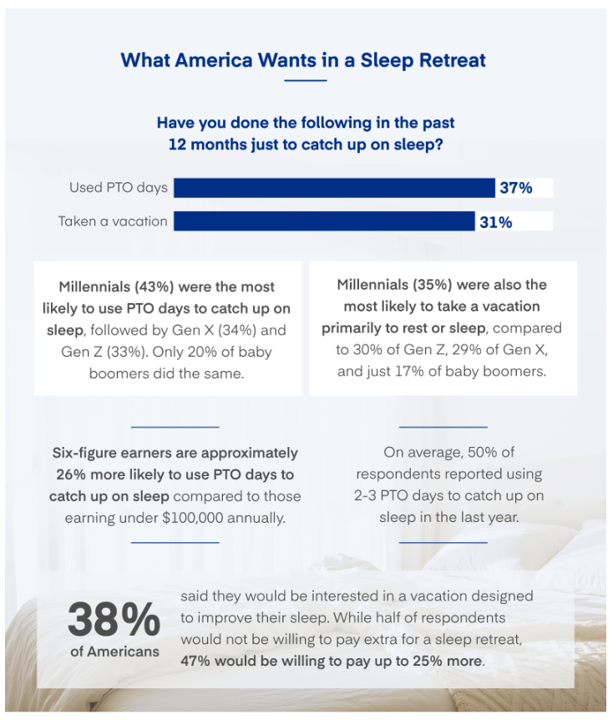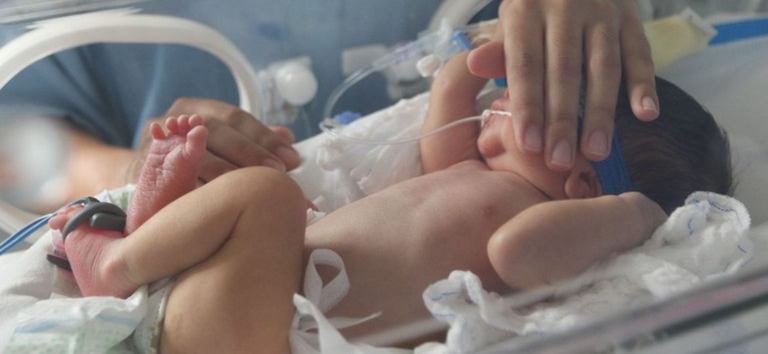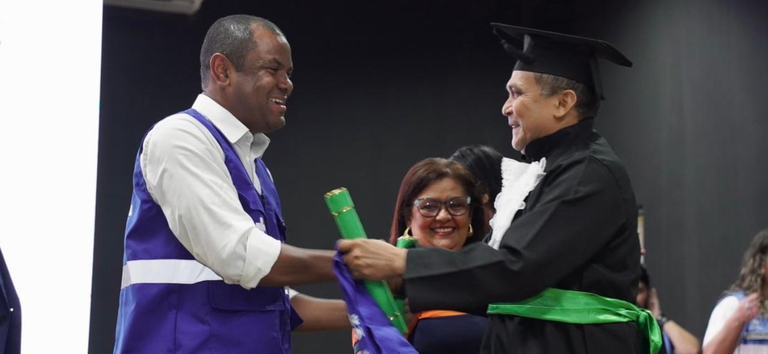Sleep is a sort of luxury good when you don’t have it or get it: like water in a desert, it’s priceless and life-saving.
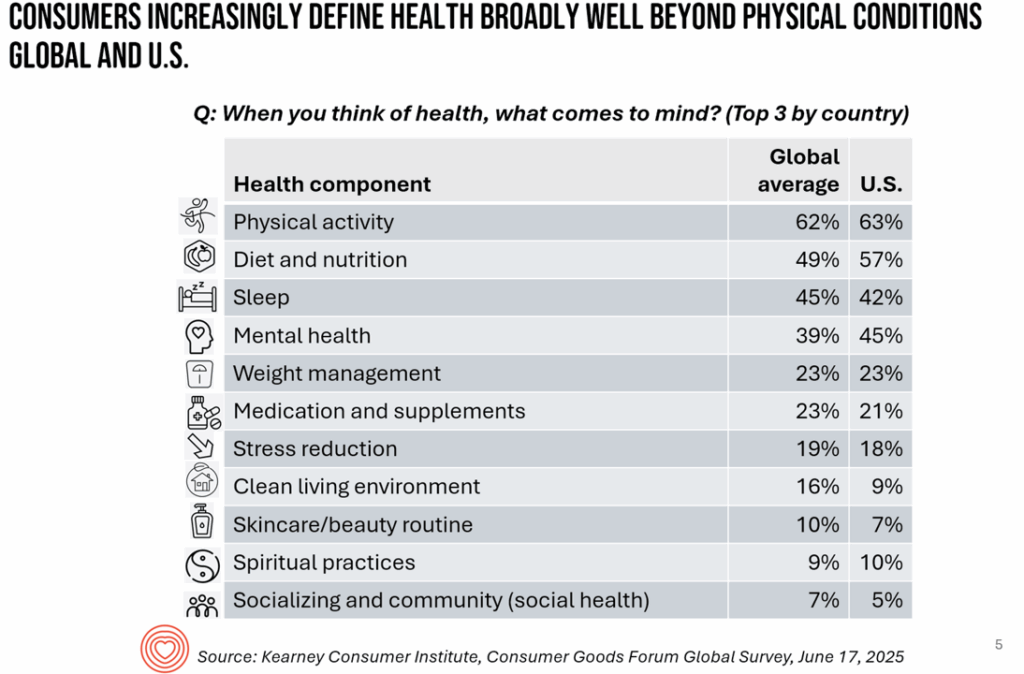
When someone thinks of health, “sleep” falls into the top 3 factors, as measured by the Kearney Consumer Institute’s global survey conducted for the Consumer Goods Forum 2025.
You can see from Kearney’s data shown here that physical activity (say, mobility and walking and moving about) ranks top for global health citizens, followed by diet and nutrition.

Amerisleep, a sleep goods company, reeleased an in-depth consumer survey in late September, finding that in the U.S., over one-third of U.S. adults took PTO days — that is, paid time off from work — to catch up on sleep.
Furthermore, 31% of Americans took a vacation to get some sleep. Younger workers (Millennials) were most likely to use PTO and take vacay to rest or sleep compared with other generations.
But time-off-for-sleep is a real thing, with 50% of survey respondents to Amerisleep reporting using two to three PTO days to catch up on sleep in the past year.
This is also a hack utilized by more affluent people in the U.S.: people earning at least $100,000 a year would be more likely to use PTO days to catch up on sleep versus folks earning less than $100K a year. (To be sure, lower-income earners probably have less opportunity to bank and take advantage of PTO days, but we’ll put that aside and make the point that people are trading off time for sleep.

The previous table also speaks to Amerisleep’s question about travel and vacation: the company looked into Google Trends data, shown in this bar chart, finding that “interest in wellness travel and rest-oriented getaways is growing.”
The Google Trends analysis found 95% growth in searches for “wellness travel” in the past two years, 44% growth using the term “sleep resort,” 33% for “sleep vacation,” and 21% for “quiet vacation.”
What’s clear is that globally, a plethora of health citizens feels sleep-deprived, and more of us are willing to trade off time (PTO, vacation, or otherwise) to get more shut-eye.
The Amerisleep research was conducted among 1,253 Americans to explore how people approach sleep recovery and their interest in sleep-focused travel in June 2025. The 2 years of Google Trends search covered July 12, 2020, to July 13, 2025.

Health Populi’s Hot Points: I raised the concept of a “luxury good” in the opening of this post as it resonated with Kearney’s related research to the study I cited above on people expanding their personal concepts of holistic health — to include “sleep.”
I adapted this last chart from Kearney’s new study into The Overlooked Consumer – subtitled, “lost in the noise of geopolitics and AI.” This is a very current profile of the average consumer globally — living a combination of a scarcity mindset, an optimization mindset, and a “YOLO” mindset — that is, “you only live once,” seeking a treat or small lusury product or service once in a while albeit in a fiscally constrained household budget environment (that is the scarcity, combined with “optimization” clipping coupons down-trading to private label products at the grocery and health-and-beauty aisles, trading off protein choices to lower-cost forms of animal or plant protein, etc.
In the case of sleep, it made me wonder: sleep really is a luxury good for those who can afford to trade-in or -up time for a wellness resort or “quiet place” for downtime — in this case, sleep and rest time.
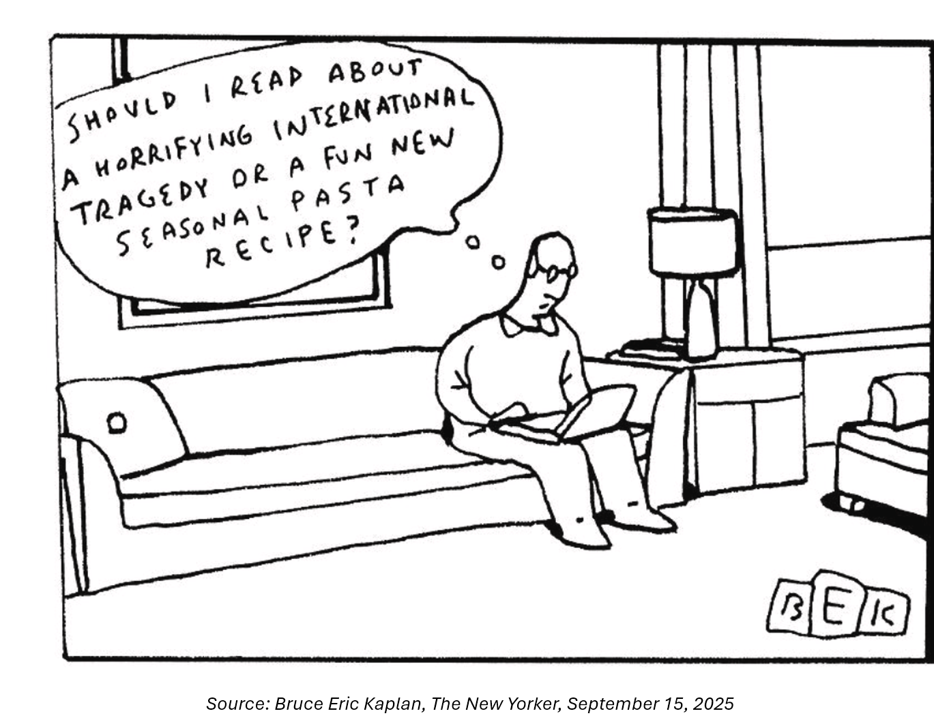
In a talk I gave last week on the “Personal Health Operating System,” I called out this perfectly-timed New Yorker cartoon beautifully articulated by Bruce Eric Kaplan:
Our on-the-laptop protagonist (who probably needs a digital detox himself) wonders:
“Should I read about a horrifying international tragedy or a fun new seasonal pasta recipe?”
I rest, ahem, my case, on sleep-as-medicine and the tradeoffs we’re increasingly interesting in making voting for time off for sleep.

